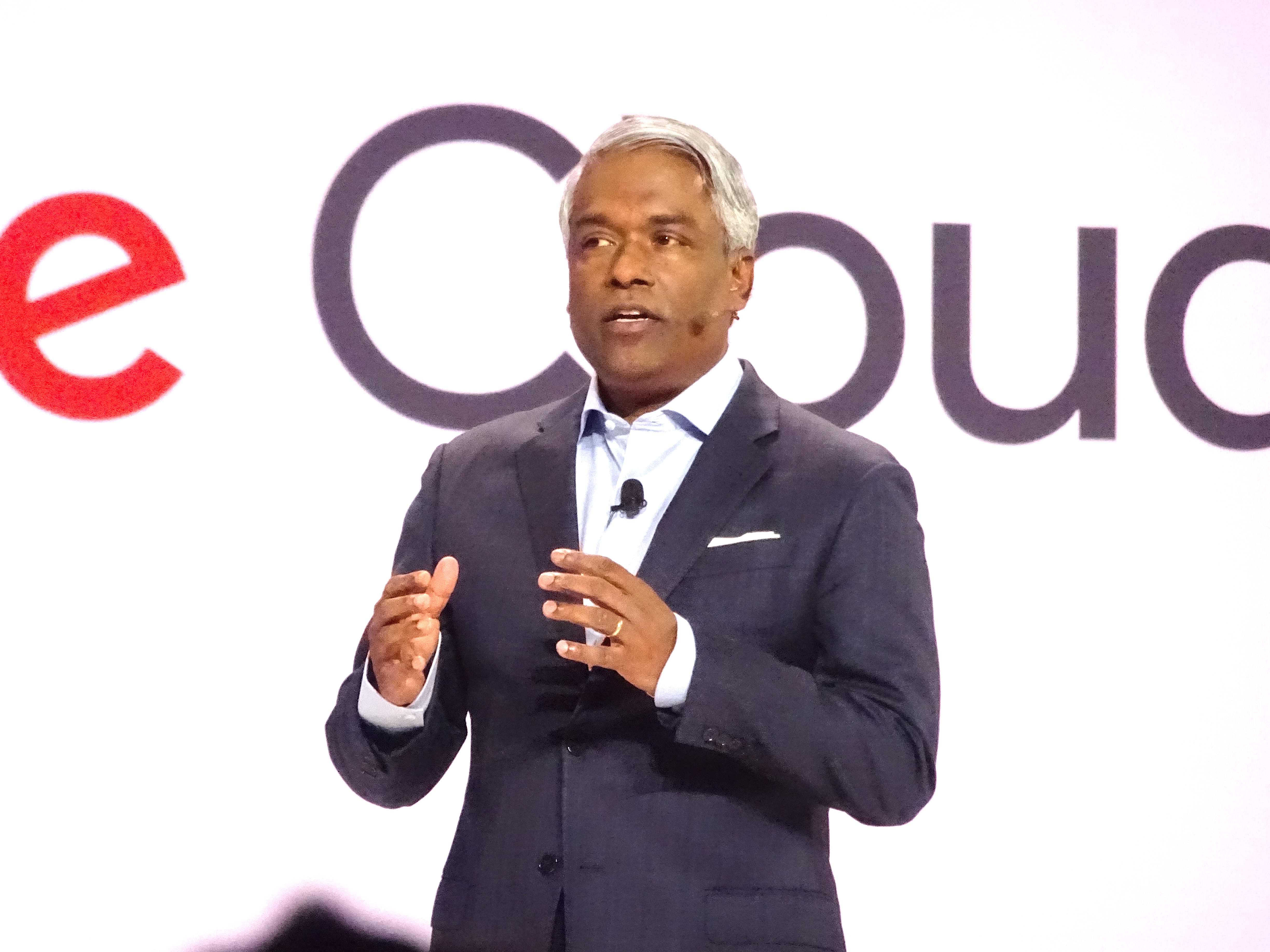 CLOUD
CLOUD
 CLOUD
CLOUD
 CLOUD
CLOUD
The central message from Google Cloud Next, Google LLC’s annual gathering of customers and leaders from its cloud division, was made clear early in its keynote session today. An opening slide simply stated: “The old way is getting old. The new way uses AI.”
Building the new way was the focus of Google Cloud’s major announcements at its gathering in San Francisco as the company released a series of enhancements for its platform with artificial intelligence at the center. The releases included new tools for BigQuery Studio and Duet AI, virtual machines and its Vertex constellation of cloud services for building machine learning models and customizing analytics.
“As a company we’ve been preparing for this moment for some time,” Sundar Pichai, chief executive of Google LLC and its parent Alphabet Inc., said during a brief keynote appearance today. “AI will be one of the most profound shifts we will see in our lifetime.”
In recent months, a notable trend has been that when there are any AI-related announcements from a major enterprise computing company, Nvidia Corp. is involved. After an appearance in Las Vegas last week to discuss his company’s collaboration with VMware Inc., Nvidia CEO Jensen Huang joined Google Cloud CEO Thomas Kurian (pictured) in San Francisco to announce that Google’s PaxML for building large language models would enable developers to use the chipmaker’s hardware. Nvidia’s H100 and A100 Tensor Core GPUs will now help drive Google’s PaxML.
Google’s joint announcement with Nvidia underscored the cloud provider’s interest in continuing to strengthen its partner ecosystem and broaden its appeal to key constituencies, while capitalizing on interest in generative AI among enterprise industries.
“We’re working with a broad ecosystem of partners to make it easy for customers to adopt a generative AI and cloud platform,” Kurian said. “We are building the new way to cloud.”
Google Cloud’s interest in leveraging its partner ecosystem could be seen in other examples away from the keynote stage. The company announced this week that it would combine its integrated open data cloud based on SAP Datasphere with Vertex AI to enable new generative AI capabilities for SAP SE customers. AI21 Labs Ltd. also announced a collaboration to speed model training and inferencing by offering generative AI features on top of Google’s BigQuery engine.
“We think it’s going to unlock a lot of opportunities with customers who are already using BigQuery,” said AI21 Labs CEO Ori Goshen. “It’s been a long journey, but this is, in a sense, only the beginning.”
In making its customers available to the media during the conference, Google also shed new light on how enterprise users are grappling with a wave of interest in generative AI. Germany’s Deutsche Bank AG has been deliberate in its adoption of the technology, ensuring that a human is always in the loop and focusing on a need to prove that the models it builds work and can be explained to regulators.
“There is no free pass for any technology,” said Christoph Rabenseifner, chief strategy officer for technology, data and innovation at Deutsche Bank. “We have to train our people so they understand how those models work. That’s the most important part.”
The people side of the generative AI equation is playing out in another important respect. Concerns around privacy and how massive amounts of data are being used to train AI models are an issue that Google Cloud carefully sought to address at its conference this week.
Duet AI, the company’s embedded generative AI assistant with conversational capabilities, is designed to sift, organize and prepare data for use with AI models for business needs. Mindful of sensitivity around how models are being generated using multiple customer datasets, one Google Cloud executive made it clear that Duet AI would safeguard data privacy.
“With Duet AI, your data is your data,” Aparna Pappu, vice president and general manager of Google Workspace, said during her keynote presentation today. “None of your data is used to train our models.”
Google’s Duet AI is also being positioned to support enterprise security initiatives. Today the company launched Mandiant Hunt for Chronicle Security Operations, a managed threat hunting service. The solution will bring Mandiant’s threat intelligence to Chronicle, Google’s cloud service designed to analyze security and network telemetry.
Google Cloud has also integrated Duet AI across Chronicle and Mandiant Threat Intelligence to reduce the time analysts spend in running and refining searches or triaging complex cases.
“We use what we learn on the frontlines to drive our product evolution,” Mandiant CEO Kevin Mandia said in his keynote presentation. “We’ve only just begun to leverage generative AI for security. AI is going to change the game for all of us.”
THANK YOU